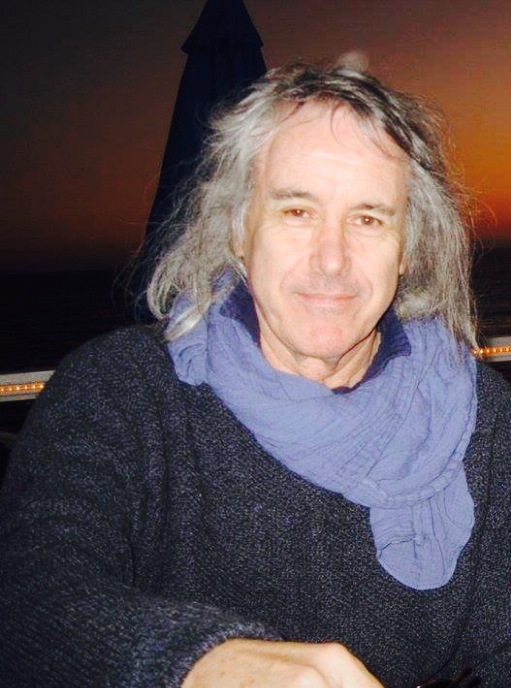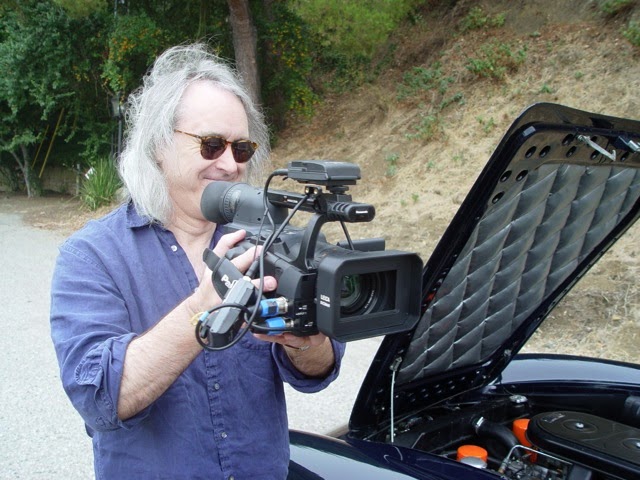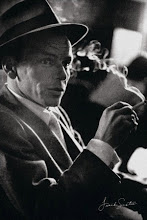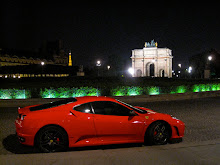The following is from J.T. Grimm who was an actor in my film and TV repertory company for years. The (Interview) episode he describes is embedded below.
"It had to be worthy of you..." Two compliments and a night of dance.
Writer/director
Stephen Mitchell rekindled the memory of a magical evening when he spoke of a taping we had done together. When
he was surprised to learn that I still had a copy on VHS, I offered to
make it available for digital conversion as Stephen's masters had been "lost at sea". Here is the story of Dr.
Robert Baker, Ph.D (Interview).
I
had recently joined the Cine Paris repertory company. As the artistic
director and founder, Stephen had first pick of the actors in the
company for his film and TV projects. One of his flagship projects was
the television series "(Interview)". Only the best and most accomplished
actors in the company were invited to participate by taping an episode,
Stephen,
as the off-screen "host", would conduct a long-form interview with the
author of a recently published book. The twist, and the reason the series
title was placed in parentheses, was that the book did not exist and
the author was an actor. The show was a fictional interview that passed as real until the actor's credit appeared at the end and sometimes even that clue was too subtle to convince the viewer what they were seeing was not real.
The subject of the "book" was a story Stephen had composed moments before the tape started to roll. He used the actor to breathe life into the that story. It was one of the most challenging projects for an actor to perform. You had only a few minutes to master all the dialogue he had composed for you, memorize the plot points, learn the story arc and make the choices for bringing life to the character and the story.
The subject of the "book" was a story Stephen had composed moments before the tape started to roll. He used the actor to breathe life into the that story. It was one of the most challenging projects for an actor to perform. You had only a few minutes to master all the dialogue he had composed for you, memorize the plot points, learn the story arc and make the choices for bringing life to the character and the story.
Stephen
would only call upon the most seasoned and skilled performers for this
series because of its intense demands. When he told me to "Be at the
studio at 7 tonight for an (Interview)," it was like being called
straight from club play to Premier League soccer. About
15 minutes before the segment was shot, Stephen would interview his
actor about portions of their life. Unbeknownst to a first-timer such as
myself, the answers to his questions would be woven into his interview
of the character that the actor was about to portray.
It
was a brilliant composition technique. By incorporating some of the
actor's own words and experiences into the character's dialogue or the
questions posed in the "interview", Stephen made it a more collaborative
piece. He could hinge portions of his story on events or words that
were familiar to his performer and ensure that if the actor lost their
place in the story or forgot a line of dialogue, Stephen could use their
own words or experiences to guide them back to where he wanted to story
to go.
In addition to the
fixed talking points and dialogue created in the pre-shoot briefing, Stephen
would also go over the cues and signals he would use to direct the actor
during the shoot--where to look, how long to pause, when to respond
with a talking point and when to respond with a fixed piece of dialogue,
how much emphasis or volume to place on certain responses, reactions he
wanted, and so on.
The
series was shot "live" in one single, continuous "take" (live-to-tape, as it is called) and he worked
with a minimal crew. On this night, camera one was operated by the
company's technical coordinator Dave Manship. Camera two was covered by
actress-comedienne Lea Lashaway. Camera three was locked down into a static medium shot and in the booth, composer/actor Kevin
Courtright was the technical director. Kevin had joined the
company to hone his writing skills. Today, his most recent book Back to Schoolin': What Led Zeppelin Taught Me About Music amply displays those talents.
Before I knew it, I was mic'ed, in the chair and we were counted in.
Stephen
began the shows with a bit of exposition and "set-up" of the character
and situation à la Charlie Rose. He knew that most viewers would tune in part-way through
the broadcast so he would wait until the half-way point before getting
into the heart of the story. We
passed our first fixed dialogue, an ironic, self-deprecating joke about
being an idiot savant and segued into our first major talking point on
"Elegant Solutions." As I moved through and around the subject, I kept
looking for Stephen's directing cues and there were none to be seen.
He
had selected Turkey as the host country for Dr. Robert Baker's
adventure and by the time I was deep into that exposition I sensed that
something special was occurring. When
I made reference to Winston Churchill's description of the Soviet Union
("A riddle, wrapped in a mystery, inside an enigma"), Stephen's
enjoyment became clearly evident. He laughed out loud at my quip about
State Department briefings that were only long enough to be read in one
visit to the W.C.
We had
entered that sought after state that psychologist Mihaly
Csikszentmihalyi called "flow"--complete absorption with the activity at
hand and the situation around it. Or, to paraphrase Fast Eddie Felson
in The Hustler, "…I got oil in my arm. The pool cue's part of me--it's
got nerves in it. You don't have to look, you just KNOW. You make shots
that nobody's ever made before." Whatever
he threw at me, I was able to catch and return. Each return of
mine inspired a new and different "toss" from Stephen.
He
took a minor point from our pre-show discussion about going to the
Hambletonian race as a boy and the"sulkies"--the carts ridden in harness
racing--made their way into interview. As
I expounded on the presence and nature of patterns around us, I
realized that Stephen had invited me into his ballet and we performed
our verbal pas de deux.
When Stephen was
composing the story he wanted something with the initials "IRA." I had
thoroughly enjoyed a small scene he had written for me the week before
that had played on the imperative tense and the confusion that often
arises in the use of the verbs to imply, to infer and to impute.
Inspired by that scene, I suggested Inferential Reductive Abstract
Analysis. He loved it. His story arc relied upon Dr. Baker's book and
creation (Inferential Reductive Abstract Analysis) to be the retirement
plan for Dr. Baker, his "IRA".
I
was not aware that Stephen would often throw a subject or question at
his actor that had not been discussed before the shoot in order to
obtain a completely unplanned, natural reaction. I was surprised when
he threw in architecture and college curricula to the interview but
knew that my duty as his performer was to stay with him no matter where
he went.
Apparently my
entire improvisation of becoming an expert in a created curricula and "throwing the rule book out the window" was enough to coax a second
laugh-out-loud moment from him. My
elaboration on the talking point of the "Spaghetti Harvest" BBC satire
and my reference to Executive Privilege with "Ruffles and Flourishes,"
the musical fanfare that is presented in advance of the President of the
United States, was such an unexpected path that he laughed out loud
again.
All too soon, Dave
touched Stephen on the shoulder and Stephen responded with the "I
know" gesture before leisurely turning his attention to the gold Rolex GMT-Master
on his wrist and counting us out.
As
he was getting up to leave I said, "Stephen, I didn't see any
direction!" Without looking back, on his way out the door, he said, "You
didn't need any." Wow! What a compliment.
Over
the next few months, as I watched him prepare for other "(Interview)s",
I would ask him when we could do another. "Later," he would say. It
wasn't until we had dinner a couple of years after he had folded the
company that I learned the truth. As we were parting I asked, "Why
didn't you do another (Interview) with me?"
"I needed a story," he told me.
"But you have lots of stories. You write hundreds of them."
"It had to be a good one. It had to be worthy of you."
Thank you Stephen. For two incredible compliments and a night of memorable dance.

























































No comments:
Post a Comment